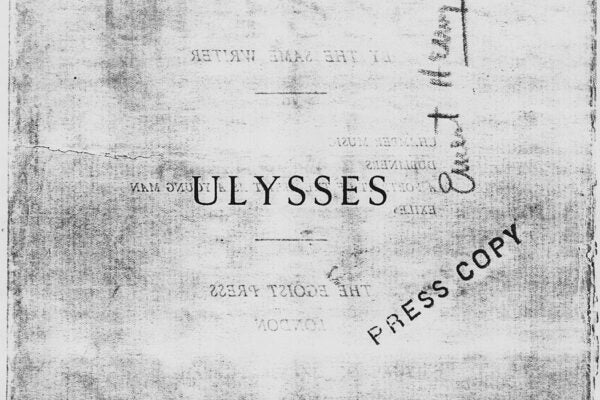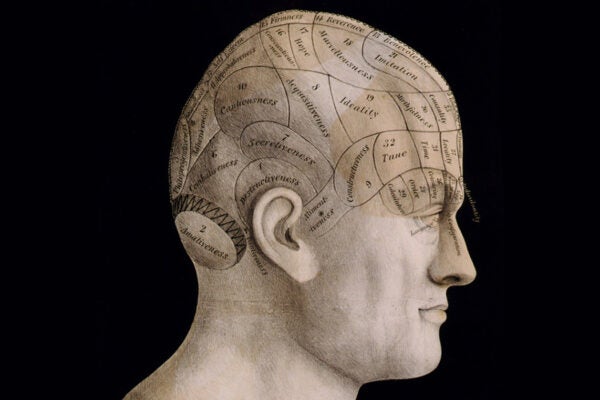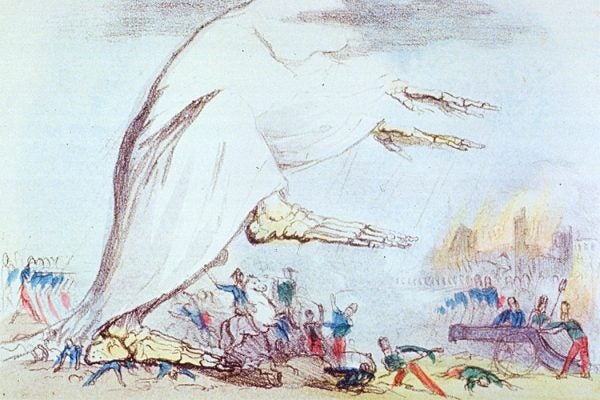Lost Literacies Strips Down the Dawn of Comics
In his new book, literary historian Alex Beringer demonstrates how the birth of the genre of printed comic long preceded the Sunday Funny Pages.
James Holman, the “Blind Traveller”
Once a celebrated travel writer, Holman struggled to find a publisher for his books thanks to a Victorian reluctance to witness his disability.
Ulysses Obscenity Decision: Annotated
In December 1933, Judge John Woolsey issued what would become one of the best known legal decisions on obscenity in United States history.
Shortcomings Shows the Loneliness of Refusing to “See” Race
Adrian Tomine’s graphic novel forces the reader to surveil the world through the eyes of its protagonist, Japanese American theater manager Ben Tanaka.
What Skulls Told Us
The pseudoscience phrenology swept the popular imagination, and its practitioners made a mint preying on prejudices, gullibility, and misinformation.
The Caricature Who Couldn’t Appear on American Born Chinese
The television adaptation of Gene Luen Yang's graphic novel called for significant changes to the character of Chin-Kee.
Every Good Bird Does Fine
Is birdsong music, speech, or something else altogether? The question has raged for millennia, drawing in everyone from St. Augustine to Virginia Woolf.
From La Jetée to Twelve Monkeys to COVID-19
If the pandemic has you wishing for yesteryear, watching 12 Monkeys—and the time travel art film that inspired it—is just the thing.
Disease Theory in Mary Shelley’s The Last Man
Shelley's third novel, about the sole survivor of a global plague, draws on the now-outdated miasma theory of disease.
Is It Really Carnival if You’re Not Drunk?
Carnival is known for overturning the rules of society for a short time. But strangely, many scholars don't discuss what a big role alcohol plays in it.









